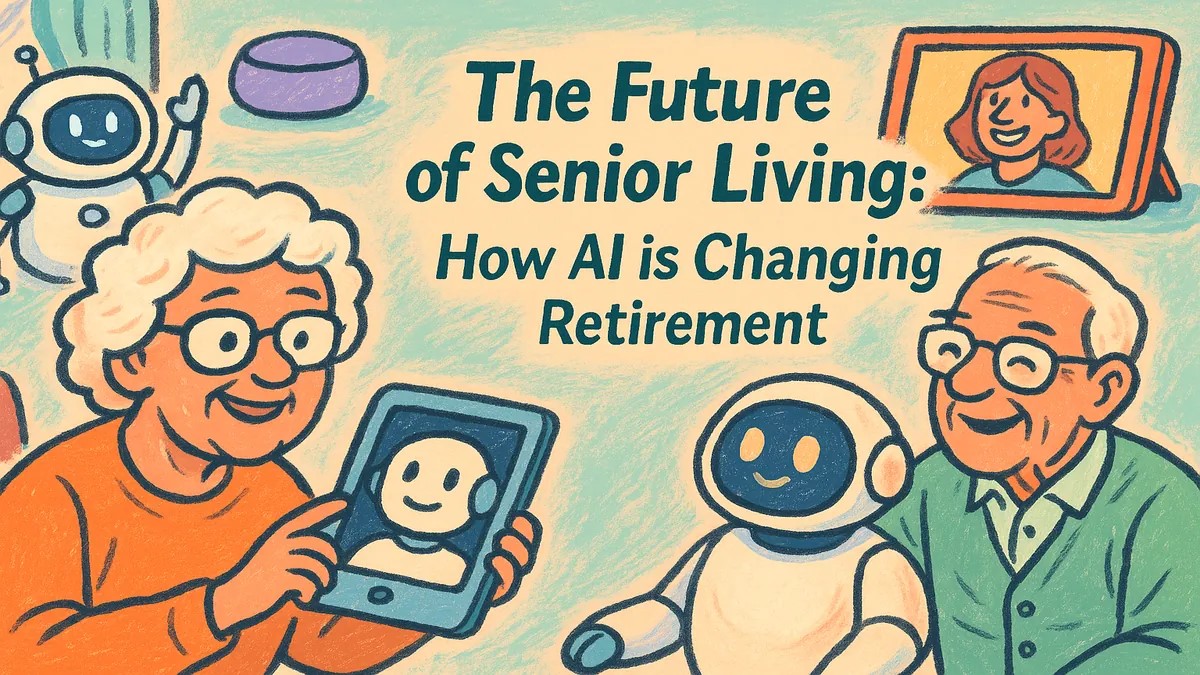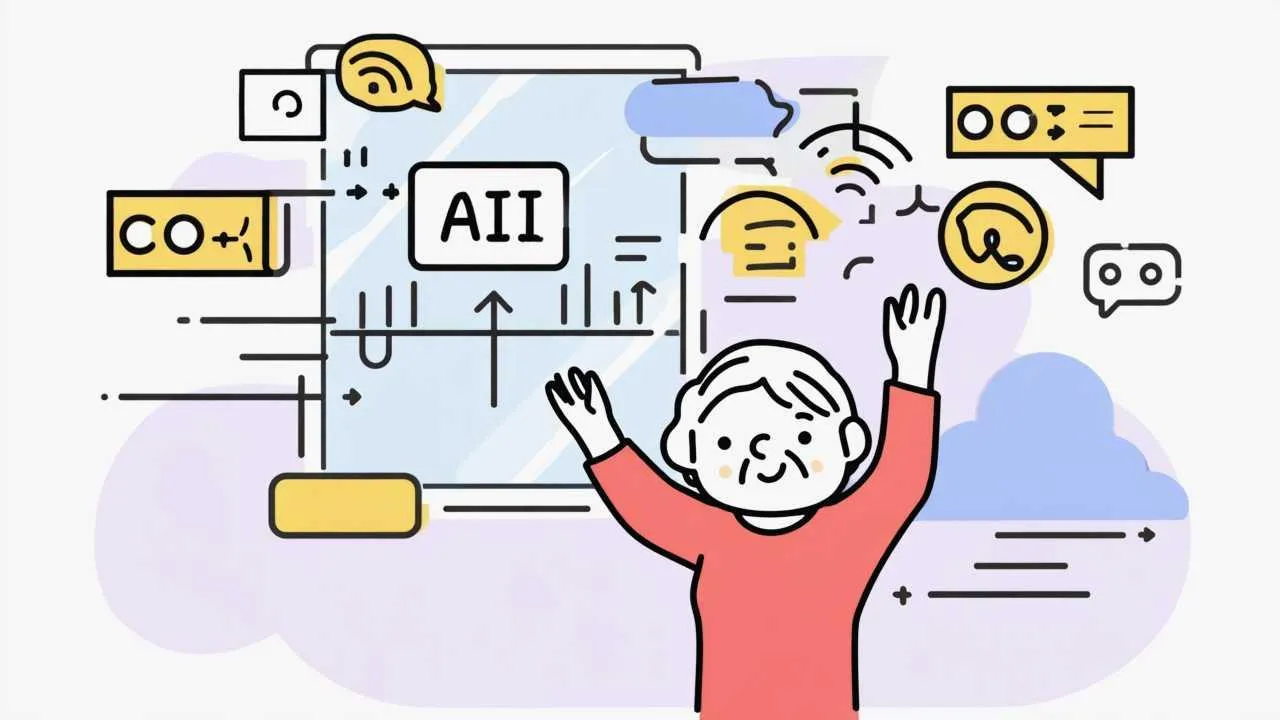Retirement used to mean slowing down. Today, it means leveling up — thanks to artificial intelligence (AI). From smart homes to digital companions, AI is transforming how older adults live, stay healthy, and stay connected. This article explores the future of senior living and how AI is helping retirees live better, longer, and more independently than ever before.
1. What AI Means for Retirees
AI refers to smart technology that can learn, adapt, and help with daily tasks. It powers everything from voice assistants to health-monitoring devices. For seniors, AI means less stress, more freedom, and better quality of life.
2. AI-Powered Smart Homes
- Voice-Controlled Lights & Thermostats: Say “Turn on the lights” or “Make it warmer”
- Fall Detection Sensors: Alert family or emergency services instantly
- Automated Cooking & Cleaning: Smart appliances simplify chores
These technologies help older adults live safely at home — even alone — longer than ever before.
3. Digital Companions and Mental Wellness
AI chatbots like Replika and robots like ElliQ offer conversation, memory games, and emotional support. These tools help reduce loneliness, stimulate the brain, and offer daily structure — especially important for seniors living alone.
4. Personalized Healthcare with AI
AI in health apps now tracks your blood pressure, medication schedule, and sleep. Smartwatches can detect irregular heartbeats, while apps like Medisafe and Apple Health send personalized alerts and wellness suggestions. AI can even remind you to drink water or go for a walk!
5. AI for Lifelong Learning
Curious retirees are using AI-powered tools like ChatGPT and Duolingo to explore new hobbies, write life stories, learn languages, and stay mentally active — all from their living room.
6. Financial Safety & Assistance
AI tools can detect suspicious bank activity or phishing attempts, helping protect retirees from scams. Budgeting apps now include AI advisors that help track spending and plan for long-term care costs.
7. Community Connection Through Technology
From virtual senior centers to AI-assisted video calling, retirees can stay socially engaged. Smart displays like Alexa Echo Show make it easy to join book clubs, attend church services, or video chat with grandchildren — all by voice command.
8. Real Stories of AI in Senior Living
- John, 73: Lives independently with a smart home system that monitors safety and controls appliances.
- Alice, 78: Uses ChatGPT daily to write memoirs and email her family.
- Leo, 69: Practices Spanish every morning with Duolingo AI and joins online classes.
9. The Future Outlook: Aging with AI
The future of retirement isn’t passive — it’s empowered. AI will continue to evolve, offering even smarter tools for transportation, caregiving, home design, and emotional wellbeing. Expect senior living communities to integrate AI fully within the next 5–10 years.
Conclusion: Aging Smarter, Not Slower
AI is not just about convenience — it’s about possibility. From enhancing independence to extending wellness, AI is rewriting the retirement story. Seniors now have more tools than ever to shape their own futures, stay safe, and live richly. The future is here — and it’s smarter, safer, and more connected than we ever imagined.
👉 Related reads: Learn about AI companionship in
AI Companions for Seniors: Beyond Virtual Assistants
or explore real retiree stories in
From Retirement to Reinvention: How Seniors Are Using AI in 2025.
You may also like:
Updated October 2025




